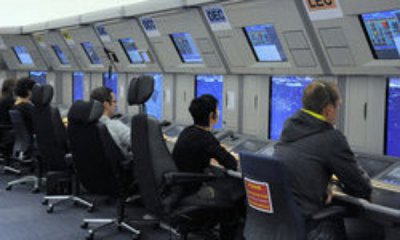Eurocontrol is taking the final regulatory steps towards becoming the network manager for the European ATM system, a role that will be crucial to the success of the Single European Sky (SES) effort.
The agency says that it is seeking the formal approval of its member states to accept the nomination as network manager. It has recently received the formal nominating letter from the European Commission.
Eurocontrol already performs some of the roles envisaged for the network manager, but the new title will give it more oversight and coordination authority. Eurocontrol has been the natural choice for this role, and has been widely expected to fulfil it, although it has taken nearly three years for this decision to work its way through the EU bureaucratic and legislative process. Airlines have for years been calling for greater centralised control over the SES and SESAR programmes.
Last year Eurocontrol undertook a reform programme to “adapt itself to the changing political and operational context and to prepare itself for the role of network manager,” the agency says. Director General David McMillan has long stressed that Eurocontrol is “ideally placed” to take on this important function.
In March, McMillan said that the network manager role does not mean Eurocontrol will dictate orders to air navigation service providers (ANSPs). Rather, it will assess actions needed to improve the overall European network and recommend changes to states and ANSPs. Eurocontrol is already doing this in many respects, but it will now have “a little more authority” to advocate for a network approach, says McMillan.
In a statement released Sept. 2, Eurocontrol says that the main function of the network manager, as authorised in the SES II legislative package, is to “ensure improved performance across the network by developing and implementing common procedures for designing, planning and managing the European ATM network.”
More specifically, the enabling regulations state that the network manager will: monitor, report and forecast the performance of the European ATM network based on agreed performance targets; act as a central unit for air traffic flow management across the region (a role Eurocontrol already performs); ensure that the European airspace can accommodate additional capacity needs and seamlessly integrate airports into the network; give member states and partners access to common resources; and support the deployment of technological improvements across the European ATM network.
Source: Aviation Week

